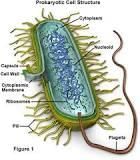Test: The Fundamental Unit of Life- Case Based Type Questions- 1 - Class 9 MCQ
10 Questions MCQ Test - Test: The Fundamental Unit of Life- Case Based Type Questions- 1
Direction: Study the given diagram of the bacterial cell and answer the following questions.

Q. Nearly half of the bacteria are motile due to the presence of ___________.

Direction: Study the given diagram of bacterial cell and answer the following questions.
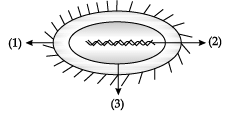
Q. The nuclear region in the diagram contains

Direction: Study the given diagram of bacterial cell and answer the following questions.

Q. The parts (1), (2) and (3) are

Direction: Study the given diagram of bacterial cell and answer the following questions.
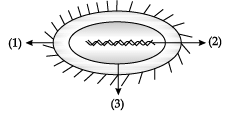
Q. Bacteria has no nucleus so, bacteria is
Direction: Study the diagram of a plan cell and answer the following Questions-
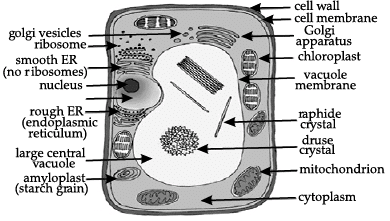
Q. Which cell organelle is involved in synthesis of vacuoles ?
Direction: Study the diagram of a plan cell and answer the following Questions-

Q. The special structures in plant cell known as Kitchen of the Cell
Direction: Study the diagram of a plan cell and answer the following Questions-
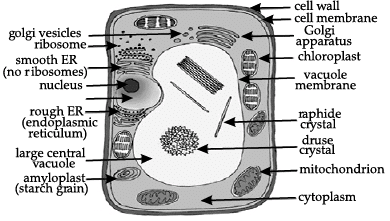
Q. Plant Cell wall is made up of
Direction: Study the diagram of a plan cell and answer the following Questions-
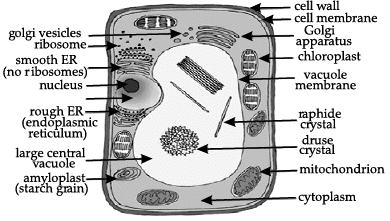
Q. Plant Cell have large _______ than animal cells.
Direction: All living Organisms are made up of cells and these cells perform all the functions essential for the survival of the Organism eg. respiration, digestion, excretion etc. In Unicellular organisms, a single cell carries out all these functions and in multicellular organisms different group of cells carry out different functions.
Q. The Cell which do not have a fixed shape
Direction: All living Organisms are made up of cells and these cells perform all the functions essential for the survival of the Organism eg. respiration, digestion, excretion etc. In Unicellular organisms, a single cell carries out all these functions and in multicellular organisms different group of cells carry out different functions.
Q. The structural and functional unit of life is



